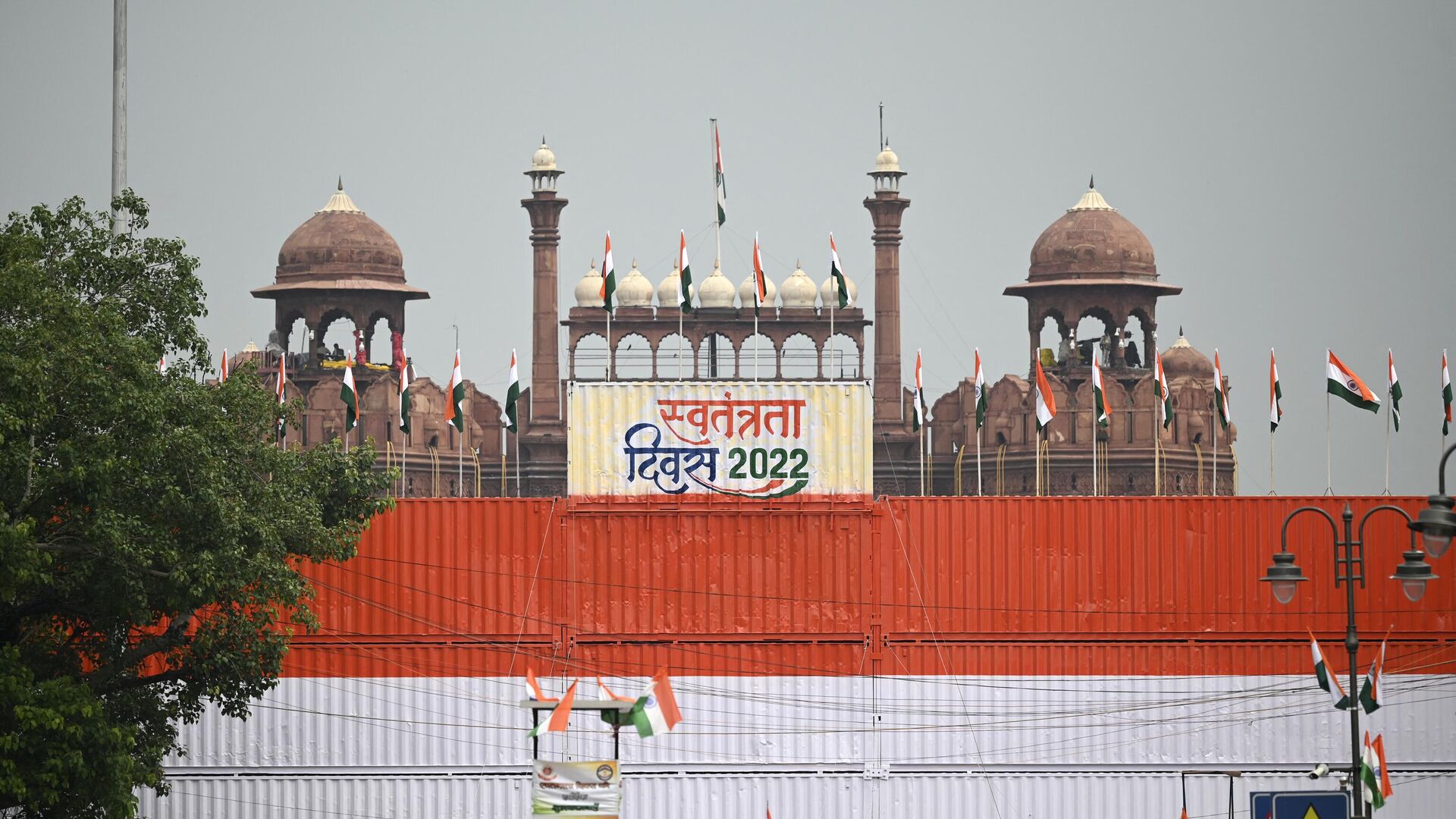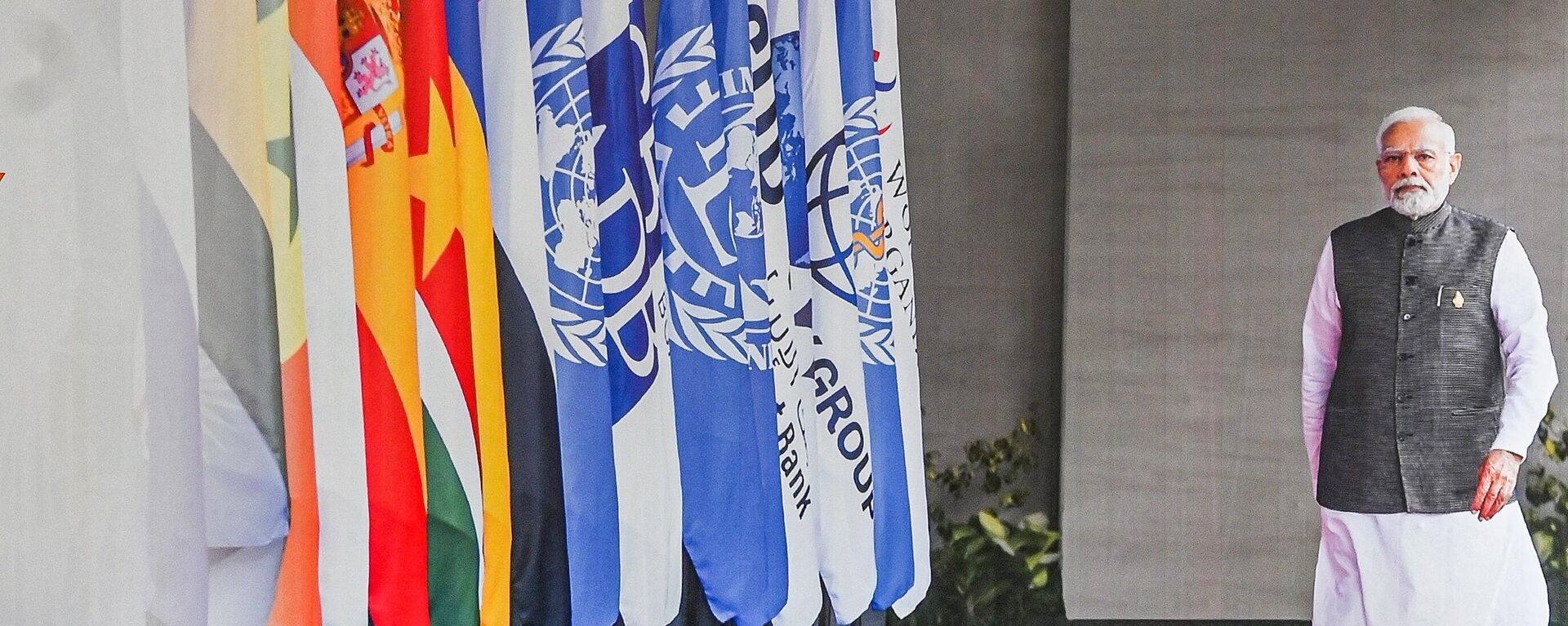https://sputniknews.in/20221213/indias-major-challenges-in-its-march-towards-third-largest-economy-21717.html
India’s Major Challenges in Its March Towards Third Largest Economy
India’s Major Challenges in Its March Towards Third Largest Economy
Sputnik India
The country has leaped from being a British colony to the world's fifth-largest economy, some 75 years since its independence. It is now looking to overtake... 13.12.2022, Sputnik India
2022-12-13T08:00+0530
2022-12-13T08:00+0530
2022-12-13T08:00+0530
south asia
sputnik opinion
https://cdn1.img.sputniknews.in/img/07e6/0c/09/26263_0:0:3073:1728_1920x0_80_0_0_54ec5c02cd97a5435b464fb1d0860f39.jpg
India has surpassed Britain to become the world’s fifth-largest economy. The leap comes with a rising level of domestic spending and a push to increase the share of the job-oriented manufacturing sector in the national income. Describing the achievement, PM Narendra Modi said that the “pleasure of surpassing the UK, who ruled over India for approximately 250 years” supersedes the mere statistics of improved ranking from sixth to fifth.Analysts cite the Narendra Modi government’s innovative schemes aimed at attracting global manufacturers and assisting the rural economy as the reasons behind the rapid progress since 2014, when the Indian economy was in tenth position in the IMF global ranking with a GDP worth two trillion dollars.Since 2014, India has surpassed the economies of the UK, Russia, Italy, Brazil, and France.However, economist at the Centre for Economic Policy and Public Finance (CEPPF) Sudhanshu Kumar has pointed out that there still exists a huge gap in the per capita income and the standard of living in both India and the UK, which, according to him “matters the most.” The Road AheadBeyond managing consumer demand, the Indian government successfully introduced production incentives for manufacturers and improved the availability of credit to small and medium-scale businesses.With a rising level of domestic spending and investment in its job-churning manufacturing sector, India is well poised to become the third largest economy after the US and China by 2030. In their latest report, Morgan Stanley analysts have pointed out that offshoring, energy transition, and the country’s advanced digital infrastructure will fuel the economic boom for the next decade.Most global financial institutions predict over six percent annual GDP growth for the Indian economy from 2022-2030. India’s rising position on the global stage concurs with Prime Minister Narendra Modi's vision for the country of 1.3 billion people, which looks to make it a "developed nation" by 2047 - the year the country celebrates 100 years of independence from Britain.Many economists have voiced the opinion that India will remain insulated should a recession sweep the globe, not unlike during the 2008 financial crisis. This, they argue, is because the Indian economy is driven more by local demand than exports.Nevertheless, the Narendra Modi government has set a target of $1 trillion in goods exports by 2030, the year when India's economy may surpass Germany and Japan into third place.In addition, the dependence on imports for its energy requirements and limited success so far in achieving independence in developing technologies remain challenges that are not easy to overcome in the short run, the economist warned. Kumar also pointed out that despite the bitter past, India and the UK share cordial relations today and look forward to a fruitful partnership in the emerging global scenario.
https://sputniknews.in/20221209/india-wont-be-us-ally-white-house-official--23173.html
south asia
Sputnik India
feedback.hindi@sputniknews.com
+74956456601
MIA „Rossiya Segodnya“
2022
News
en_IN
Sputnik India
feedback.hindi@sputniknews.com
+74956456601
MIA „Rossiya Segodnya“
Sputnik India
feedback.hindi@sputniknews.com
+74956456601
MIA „Rossiya Segodnya“
south asia
India’s Major Challenges in Its March Towards Third Largest Economy
The country has leaped from being a British colony to the world's fifth-largest economy, some 75 years since its independence. It is now looking to overtake Germany and Japan.
India has surpassed Britain to become the world’s fifth-largest economy. The leap comes with a rising level of domestic spending and a push to increase the share of the job-oriented manufacturing sector in the national income.
Describing the achievement, PM Narendra Modi said that the “pleasure of surpassing the UK, who ruled over India for approximately 250 years” supersedes the mere statistics of improved ranking from sixth to fifth.
The sentiment reflects the pain of Indians who believe that the British rulers drained the country’s humongous wealth during the colonial period. A research paper by renowned economist Utsa Patnaik – published by Columbia University Press – has indicated that Britain removed a total of $45 trillion from India during the period 1765 to 1938.
Analysts cite the Narendra Modi government’s innovative schemes aimed at attracting global manufacturers and assisting the rural economy as the reasons behind the rapid progress since 2014, when the Indian economy was in tenth position in the IMF global ranking with a GDP worth two trillion dollars.
Since 2014, India has surpassed the economies of the UK, Russia, Italy, Brazil, and France.
However, economist at the Centre for Economic Policy and Public Finance (CEPPF) Sudhanshu Kumar has pointed out that there still exists a huge gap in the per capita income and the standard of living in both India and the UK, which, according to him “matters the most.”
“The UK economy cannot be the reference for the Indian economy, as it needs to grow further to improve the standard of living of its citizen. India has almost the largest population in the world and remains far behind on many indicators of human development,” Kumar told Sputnik.
Beyond managing consumer demand, the Indian government successfully introduced production incentives for manufacturers and improved the availability of credit to small and medium-scale businesses.
With a rising level of domestic spending and investment in its job-churning manufacturing sector, India is well poised to become the third largest economy after the US and China by 2030.
In their latest report, Morgan Stanley analysts have pointed out that offshoring, energy transition, and the country’s advanced digital infrastructure will
fuel the economic boom for the next decade.
Most global financial institutions predict over six percent annual GDP growth for the Indian economy from 2022-2030.
India’s rising position on the global stage concurs with Prime Minister Narendra Modi's vision for the country of 1.3 billion people, which looks to make it a "developed nation" by 2047 - the year the country celebrates 100 years of independence from Britain.
Many economists have voiced the opinion that India will remain insulated should a recession sweep the globe, not unlike during the 2008 financial crisis. This, they argue, is because the Indian economy is driven more by local demand than exports.
Nevertheless, the Narendra Modi government has set a target of $1 trillion in goods exports by 2030, the year when India's economy may surpass Germany and Japan into third place.
“The challenge for the Indian economy is to manage its large population in such a way that it contributes towards rapid economic growth. Moreover, the country needs to improve the productivity of its labor force,” Kumar said.
In addition, the dependence on imports for its energy requirements and limited success so far in achieving independence in developing technologies remain challenges that are not easy to overcome in the short run, the economist warned.
Kumar also pointed out that despite the bitter past, India and the UK share cordial relations today and look forward to a fruitful partnership in the emerging global scenario.
“It has been a long journey for the country to come out of the shadow of the colonial period in multiple spheres of life. However, as time passes, such sentiments have a limited economic role. The two countries would remain key trading partners and are working on a free trade agreement to boost bilateral trade,” Kumar concluded.


